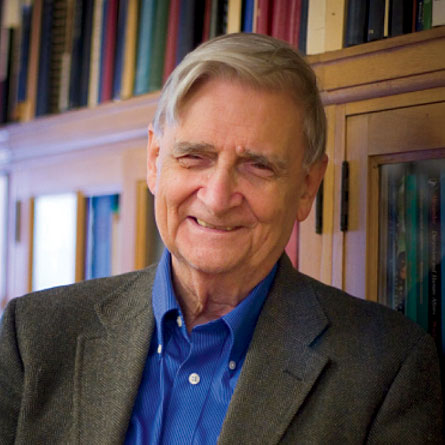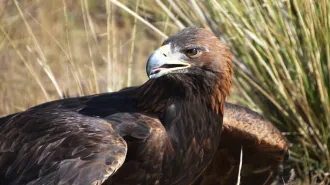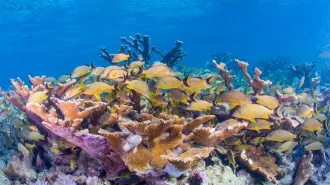Protect biodiversity hot spots and the rest will follow
By E.O. Wilson
- More than 2 years ago
Edward O. Wilson of Harvard University has written and lectured widely in fields ranging from sociobiology and evolutionary psychology to conservation biology. He spoke recently on “sustainability” at Baldwin-Wallace College in Berea, Ohio. Wilson believes that too much emphasis has been placed on trying to reduce energy consumption and avert climate change—what he calls the “physical environment”—and too little on preserving habitat and biodiversity, or the “living environment.” For Wilson, preserving the living environment means protecting areas of the world with the most concentrated biodiversity. He also believes that poverty is a critical factor that needs to be addressed to achieve a sustainable world. Freelance science writer Diana Steele excerpted his remarks:

The tragedy unfolding in our ignorance, in our preoccupation with strictly physical environments, is that human action is destroying countless species and even ecosystems before we even know they existed. Many of them are millions of years old; all of them are exquisitely adapted to some particular part of the environment.… If you save the living environment, that’s the rest of life around us, and the full diversity of it, then you will automatically save the physical environment too. But if you save only the physical environment and ignore the living environment, you will ultimately lose both.…
The 21st century, I believe, is going to be noted as the century of the environment. The immediate future can be usefully conceived as a bottleneck, of still-rapid population growth and high per capita investment and consumption. Science and technology, combined with a lack of self-understanding and the Paleolithic obstinacy that led to our ruinous environmental practices, have brought us to where we are today.… You can remember it best by thinking of us as being a Star Wars civilization: We have Stone Age emotions, medieval institutions and God-like technology. That’s the source of all of our problems.
Now, science and technology—combined with foresight and moral courage, both based from a more enlightened ethic, an educated one—has to see us through this bottleneck.… [We need to] identify the hot spots: Those are the areas that have the largest number of endangered species. The habitats in them are mostly endangered and have the largest number of endangered species that will go extinct if the habitat is allowed to be destroyed.…
Fifty percent of all the known species of vascular plants, and 42 percent of all the mammals, birds, reptiles and amphibians, are in those hot spots, which occupy about 4 percent of the land’s surface.…
It’s been estimated that that 4 percent or so can be preserved, taking care of the people who live in and around it, economically, [for one payment of] about 50 billion euros.… That is one part in 1,000 of the annual combined gross domestic products of the world’s countries. Could we come up with one part in 1,000, to save upwards of half a percent of the endangered species living on the Earth’s surface? That’s the kind of political solution and economic solution which would be impressive.…
The central problem of the new century … and the one that’s going to count big time, long-term, is how to raise the poor to a global quality of life while preserving as much of the natural world as possible. Both the poor and biological diversity are concentrated together in the developing countries. The solution to this problem has to flow from the recognition that both depend on the other. The poor … have little chance to improve their lives in a devastated environment. Conversely, the natural environment where most of the biodiversity hangs on cannot survive the press of land-hungry people who have nowhere else to go.…
This is a problem that can be solved; the resources to solve it exist. Those who control them have many reasons to achieve that goal (not least their own security): The payout in science products, benefits, would be enormous compared to the relatively small costs globally that are required. The technology to do this exists, the cost really isn’t very high and the benefits are beyond calculation.…
[The Encyclopedia of Life (SN: 3/8/08, p. 158)] is nothing less than using the best computer technology to record everything known about every known species.… Our aim is to have everything known about every one of the known species in 10 years, and then to start … rapid adding of new species until we reach the top, or come close to the end, which could be 10 million species. It could be a hundred billion species.…
[All of the information in the Encyclopedia of Life] will be available to anyone, free, anytime, anywhere. This will open research everywhere in the world, even in developing countries and so on, by giving access to what otherwise you would not have been able to get without visiting the museums, without getting the specimens, without going through the libraries, and working laboriously alone.







